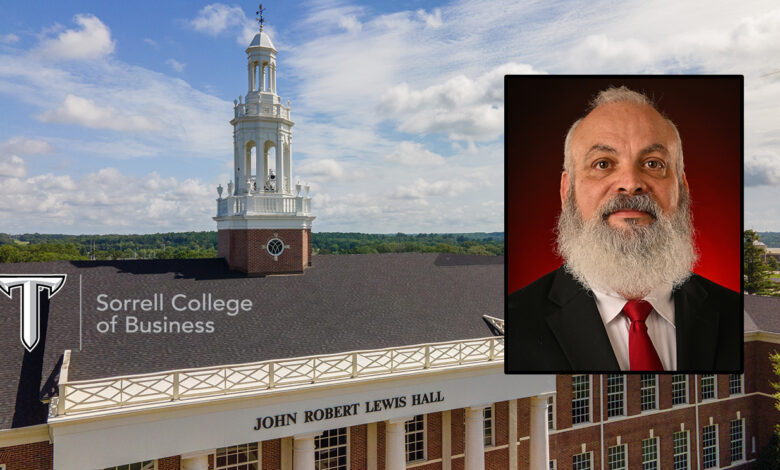TROY business professor makes legal history in field of artificial intelligence

In a new development in the field of Artificial Intelligence, Dr. Rodger Morrison has secured the world’s first copyright for a tokenization of his distinctive creating writing style. Granted in March by the U.S. Copyright Office, the action is a significant achievement in intellectual property rights within the realm of AI-assisted writing and style replication.
Morrison is a professor in Troy University’s Sorrell College of Business and his research includes work in Artificial Intelligence, biometrics, trust in computer-mediated environments, technology-related change, and more.
Tokenizations are intricate strings of characters, words, or phrases representing unique elements that are used to quickly train AI systems to emulate specific stylistic nuances. They are lengthy, in a particular sequence and contain sufficient complexity to represent an individual’s unique style, rather than the style of a particular genre.
“This copyright represents an advance in the intersection of creativity, technology, and intellectual property law,” said Morrison. “It underscores the vital importance of protecting authors’ unique voices and creative expressions in an era of rapid technological advancements in publicly available AI.”
Morrison’s tokenization is 87 characters long and comprised of 12 word tokens. The use of tokenizations permits AI platforms to quickly replicate the creative work of authors, artists, musicians, and others, even without their permission. However, despite their complexity and importance in replicating and preserving authors’ stylistic qualities, tokenizations have previously lacked the explicit legal protection creators required.
The significance of Morrison’s copyright extends far beyond the realm of literary style.
“It holds profound implications for legal scholars, creators, and the broader intellectual property community, serving as a catalyst for rethinking existing frameworks and establishing new precedents in the protection of creative work,” he said. “Legal scholars will soon examine the implications of this copyright within the context of existing intellectual property laws, exploring its potential impact on future copyright claims and the evolving landscape of digital creativity. “
For creators, Morrison’s achievement offers newfound hope for protecting their artistic styles and maintaining control over their non-AI works in an increasingly digitized world. By establishing a precedent for copyrighting tokenizations, Morrison has empowered creators to assert ownership over their unique contribution style and protecting them from use by others in AI systems. The broader intellectual property community stands to benefit from Morrison’s copyright as well, as it prompts discussions on the intersection of technology and creativity and the role of intellectual property law in fostering innovation while protecting cultural heritage.



